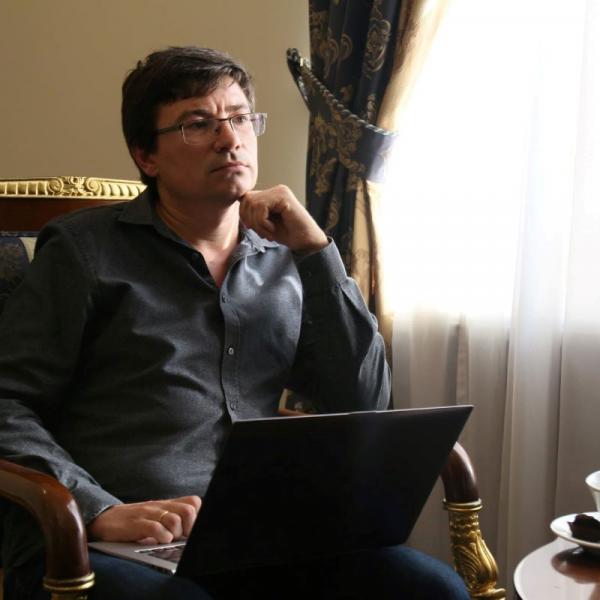Sergiy Sydorenko
I've started my journalism career back in 2000 but initially it had absolutely no connection to European affairs. And only some 7-8 years later, when I've accidentally dove into coverage of some topics of the EU-Ukraine relation, I've realised how important it is for my country - and at the same time how little known it is in Ukraine.
This drove me to the international/European specialisation which finally led to the decision in 2014 to establish with my fellow, another journalist, an independent media European Pravda, focusing solely on the European continent and European/Euro-Atlantic integration of Ukraine. Until now this media is a key source of news and analysis on these affairs for other media outlets as well as for experts and political players.
An invitation to the EUVP in 2010 that I've got from the EU Delegation in Kyiv as probably the only journalist deeply covering the topic back then, was one of the driving moments in my specialisation as it allowed me not only to know but also to feel the way the EU works. And the flexibility of the schedule provided by the program has contributed to it a lot.

Speaker's Corner
Up until today, I have very warm memories of my visit. I consider the EU Visitors’ Programme as the most effective among all study travels I ever had in terms of professional growth. It allowed me to understand the way the EU works on the Ukrainian portfolio much better and on a much more detailed level - even though I already had solid knowledge in this field as a journalist. This was exactly what the EU Delegation in Ukraine supposed to achieve when they invited me.
One more background observation I should make is that the program is tailor-made and that meetings vary depending on the individual participant's sphere of interest and engagement. This flexibility is indeed highly appreciated.
It did not change the vector given that I had already started to stick to European coverage before my participation in the EUVP Visitors’ Programme in 2011. However, it added strong momentum to my professional development in this field, because it had a direct impact on my decision to create the EU-focused media in 2014. Today, I am a co-founder and editor of the European Pravda, a Ukrainian online newspaper.
The key challenges for journalism in Ukraine today are in my view the lack of business-components in the media industry which is mainly due to a very weak advertisement market but also due to a distortion of the media industry by politically–linked media as well as by “trash media” that do not abide by standards. Secondly, there is the lack of journalists’ competence and skills. This is partly the result of the first mentioned problem. Hence, we currently see a decrease in readers' trust in free and independent journalism.
A corresponding challenge for media in Ukraine and the EU is the flow of readers to social networks, a certain decrease of trust towards the media and the apparent lack of financial resources. Notwithstanding, the scale of these problems in Ukraine is considerably larger than in the EU.
My greatest achievement has been the creation of the successful media that I currently run : European Pravda.
We should simply do our job and fulfil our mission - that is it.
The interview took place in June 2021
The opinions expressed by the EUVP distinguished Alumni on the Wall of Fame do not necessarily reflect the official EU position.
